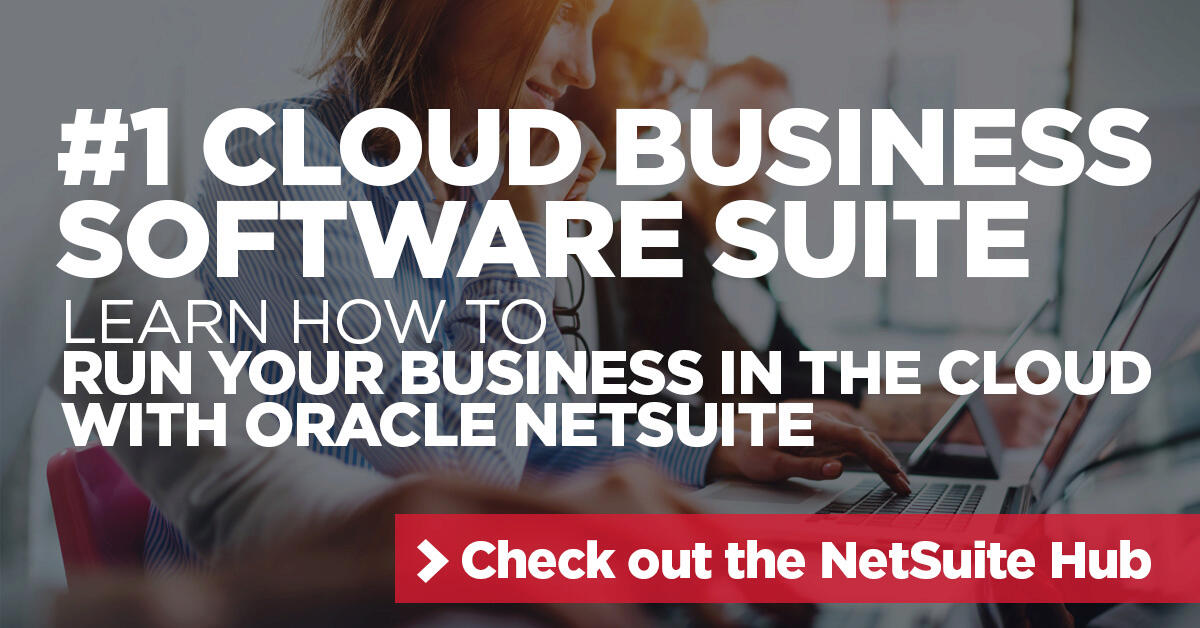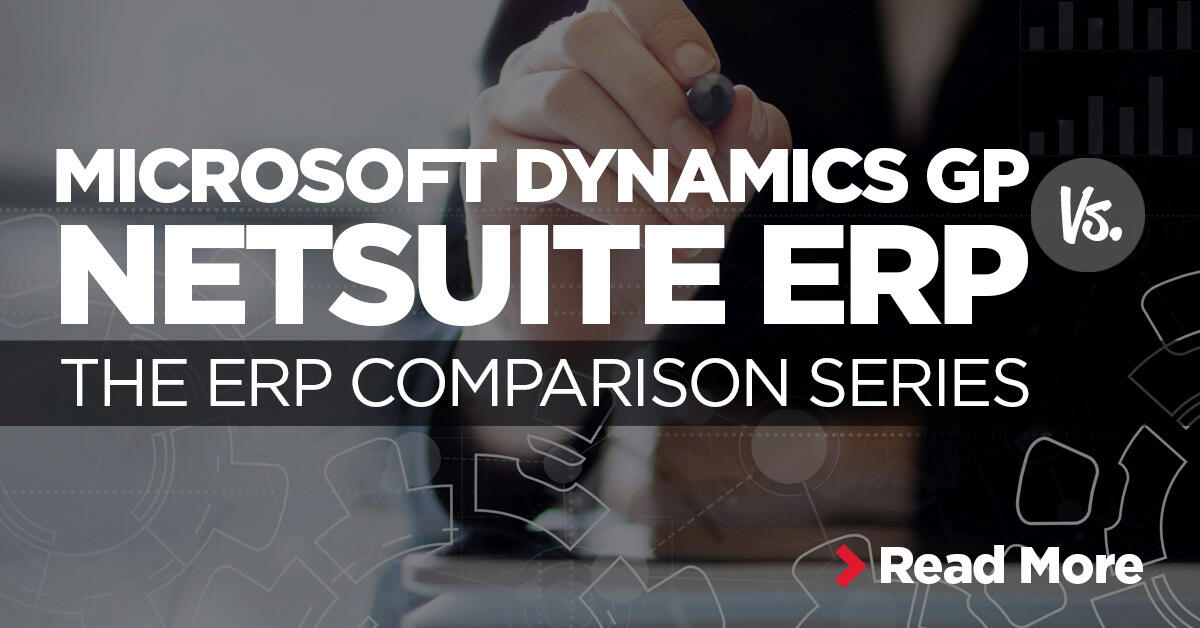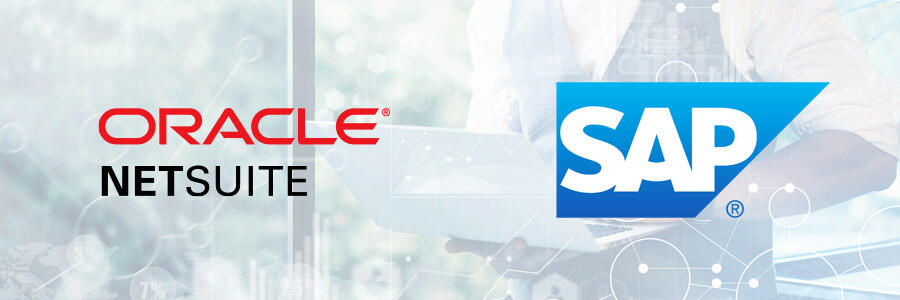
For a long time, SAP was considered to be synonymous with enterprise business software. Developed back in the 1970s, SAP is considered one of the original pioneers of ERP software. A lot has changed in the ERP space since then, and solutions like NetSuite ERP have paved the way for big innovations in the world of ERP and cloud technology.
Blog Highlights:
- What is NetSuite ERP?
- What is SAP?
- NetSuite vs. SAP Comparison Chart
- NetSuite vs. SAP: The Pros & Cons
- NetSuite vs. SAP: The Main Differences
- Which Software is Right for your Business?
Request More Info From an Expert
This rise of cloud technology has allowed other vendors to surpass SAP, both in terms of customers and capabilities.
Today, we’re putting the veteran system up against the modern system, to see which ERP solution comes out the winner in the NetSuite vs. SAP showdown.
Depending on your company’s needs and goals, one system may be better for you than the other. To help you decide which software really suits your needs, we’re going to take a deep dive into both solutions, looking at features, pros and cons, usability, and more.
Round 1 is coming up!
Make sure to check out more ERP comparisons on our ERP Comparison Hub!
What is NetSuite ERP?
Today, NetSuite is the world's most deployed cloud Enterprise Resource Planning (ERP) solution, with more than 24,000 organizations across 100+ countries.
But when NetSuite was first launched in 1998, it was launched as an online accounting software under the name of NetLedger. After becoming a popular choice for financial management, NetLedger acquired several smaller software companies. This helped build out NetLedger’s functionality and become the world’s leading cloud-based business suite that we all know today: NetSuite ERP.
In 2005, NetSuite released its CRM solution, NetSuite CRM+. This marked a big shift for NetSuite; transforming from accounting software to a comprehensive business solution suite.
NetSuite provides an end-to-end software solution across CRM, Accounting and Finance, Inventory and Warehousing, Work Orders, WIP and Routing, Project and Job Costing and more for small and medium sized businesses, as well as large enterprises.
What is SAP?
SAP (which stands for Systems Applications and Products in Data Processing) is an ERP software first founded in 1972 by Wellenreuther, Hopp, Hector, Plattner, and Tschira.
The SAP ERP application is an integrated ERP software manufactured by SAP AG that targets business software requirements of medium sized businesses, as well as large enterprises in all industries and sectors.
SAP is considered one of the first players in the world of ERP and now has many users, from many industries, worldwide.
In the last eight years, SAP has acquired several cloud-based software companies in an attempt to play catch-up in the cloud ERP space.
NetSuite vs. SAP Comparison Chart
In the comparison chart below, we’re comparing features by module between NetSuite ERP and SAP Business One to give you the most complete overview of what each solution has to offer.
| Product | 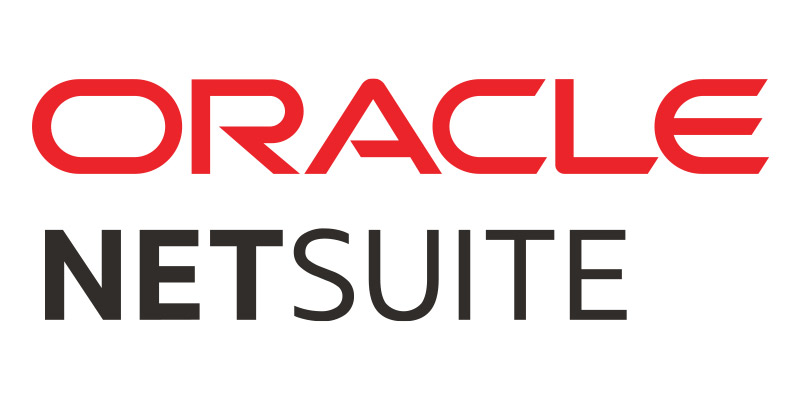 | 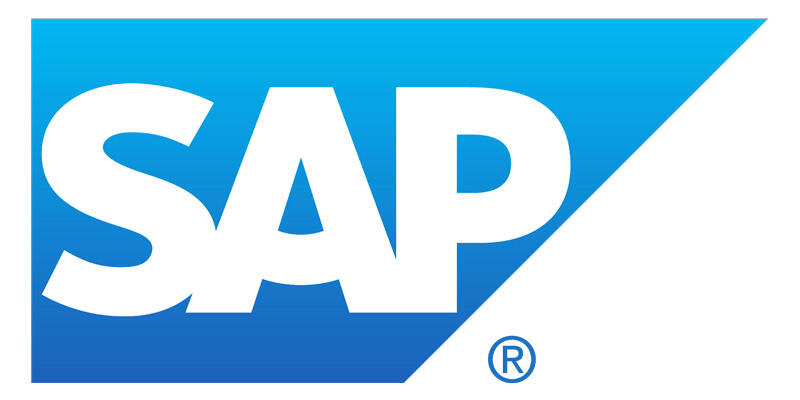 | |
| Years in Business | 22 | 19 | |
| Industries |
|
| |
| Features | |||
| Financial Management Features |
|
| |
| Supply Chain Features |
|
| |
| Human Capital Management Features |
| ✖ | |
| ECommerce Features |
| ✖ | |
| Professional Services Automation (PSA) Features |
|
| |
NetSuite vs. SAP:
The Pros & Cons
There are pros and cons to every software. Depending on the needs and goals of your business, some of the pros may be necessary, and some of the cons may be too bad to get over. It’s almost like dating.
Except in this case, your business is deciding whether to enter a long-term relationship with either NetSuite ERP, or SAP Business One.
We’re going over the pros and cons to help you make sure your business is getting involved with the right solution.
We also compared NetSuite ERP vs. Microsoft Dynamics GP in our last comparison blog. Check it out!
 | |
The Pros | The Cons |
|
|
 | |
The Pros | The Cons |
|
|
NetSuite vs. SAP: The Main Differences
When it comes to comparing NetSuite and SAP, there are certain key differences that could be the make-it-or-break-it for certain businesses.
Here is a round up of some of those main differences:
- Cloud-Based
NetSuite is truly a leader in the Cloud tech space, with over 16,000+ customers running on the same multi-tenant cloud.
SAP Business One, on the other hand, is just now making the transformation to a hosted cloud deployment model, and has minimal ERP customers on any of it’s cloud versions to date.
For those looking for a cloud-based system that can guarantee functionality and security, NetSuite’s experience and expertise in that realm, make it a key clear winner over SAP. - Upgrading Your System
Because SAP is a hosted SaaS solution, customizations and custom script may/may not carry forward with future upgrades, which may potentially require development to reinstate those customizations.
With NetSuite’s cloud-based system, all customizations carry forward with each NetSuite update, which happens twice a year.
In the end, future-proofing your ERP investment will save your company a lot of time and money. - Reporting Drill Down
With NetSuite, you can get down to the nitty, gritty details of any custom search. NetSuite uses a consistent data model and database for all its information, which means that, even as you’re building out customized reports and dashboards, you can still drill down and drill through from summary level info to detailed levels.
SAP Business One, on the other hand, requires additional reporting software (called SAP Crystal Reports) in order to get customized reporting. Unfortunately, Crystal Reports does not provide drill down / drill through capabilities. - Analytics & Reporting
To expand on reporting, Both solutions offer full reporting functionality, using KPIs and dashboards.
NetSuite’s Suite Analytics is arguably much easier to use than the SAP alternative. Suite Analytics is user-friendly, and allows you to generate real-time reports that offer a 360-degree view of your business. NetSuite also automates calculations, provides continual revenue recognition tracking, and offers complete support for all main revenue recognition rules.
SAP’s analytics module offers similar functionality to NetSuite’s Suite Analytics. However, many of SAP’s advanced analytics tools require a separate license, which adds to the overall cost of the software. - Interface and User Experience
When it comes to user interface, NetSuite made a big change to it’s dashboard during its 2019.1 update. This update provided users with a clean, modern and consistent user interface throughout the entire application.
SAP Business One is moving toward a modern and consistent user interface, called Fiori. But, it still does not utilize the products in its portfolio at the same level of functionality that NetSuite does. - Customization
Both software options provide users with the ability to add user-defined fields and manipulate their interfaces.
With NetSuite, users can easily customize using point-and-click functionality, so you don’t need to edit the code to directly customize forms, records, KPIs, and visual interface.
If a particular type of customization is not already available in the NetSuite interface, you can easily find a third-party add-on, or partner, that can do what you need, or customize using a custom script.
With SAP, directly editing code will restrict the user’s ability to upgrade the system and apply bug fixes. SAP Business One needs a separate tool for customization (MS Visual Studio), and often requires professional services for even minor changes.
Which Software is Right for your Business?
GURUS Boasts:
- Largest Oracle NetSuite partner in North America (with offices in U.S. and Canada)
- 5-Star NetSuite Partner for 9 years in a row.
- 15+ years of experience & specialization across industries like manufacturing, ecommerce, life sciences, professional services and more.
- Over 2500 successful projects completed
- A unique implementation process based on a collaborative SHERPA approach
Find Out if NetSuite is the Right ERP



